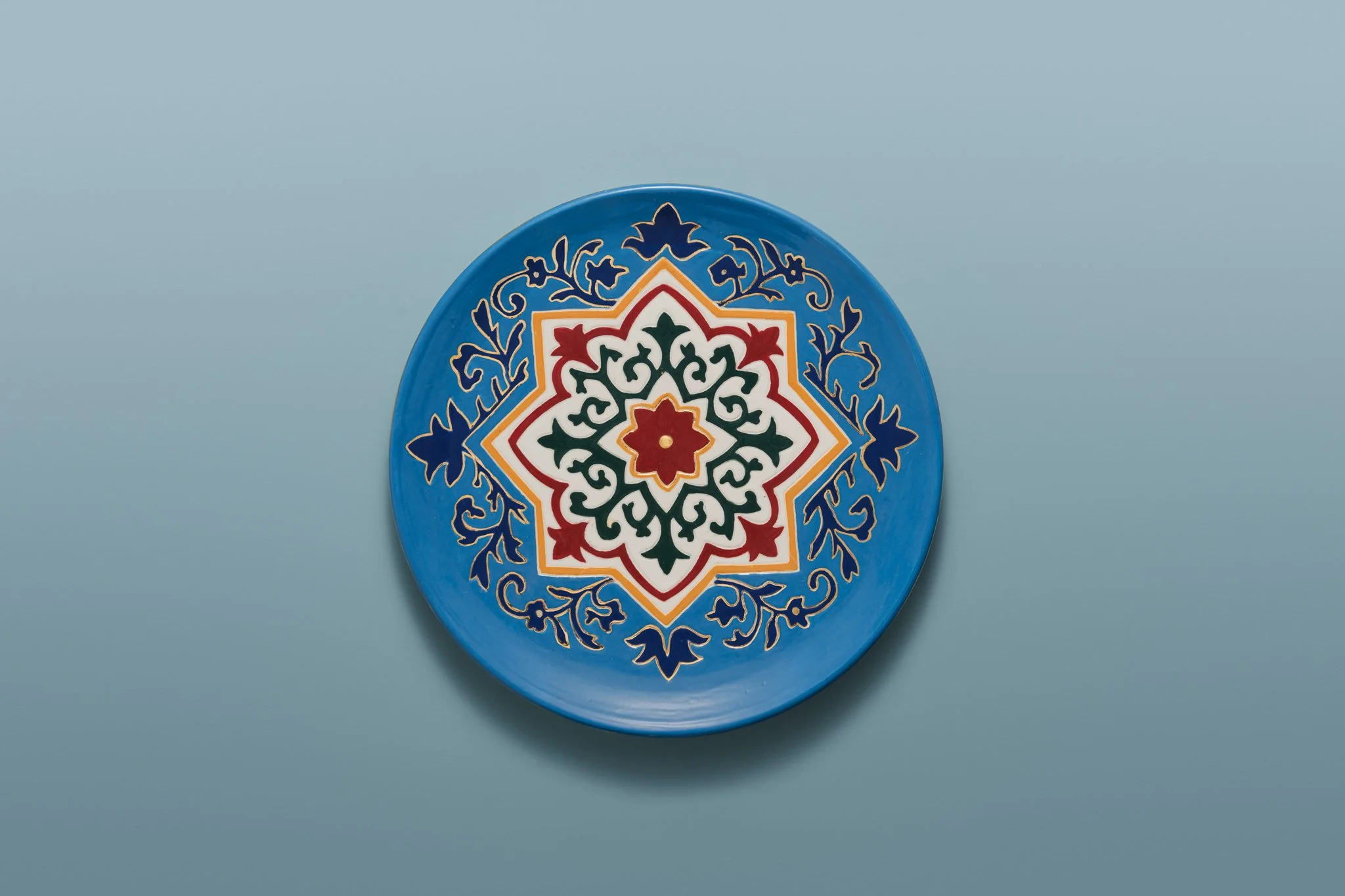Gallery Two
5 December 2025 - 12 April 2026
Location:
JamFactory
Tarntanya/Adelaide
Kaurna Country
Sales enquiries
Contact Ali Carpenter
ali.carpenter@jamfactory.com.au
Golshad Asami: Rhythms of Home
Rooted in memory, culture and the quiet flow of poetry, ‘Rhythms of Home’ is a new solo exhibition by Iranian-Australian ceramic artist Golshad Asami. Incorporating poetry, Persian script, patterns from Islamic tilework and motifs of tribal carpet weaving, Golshad speaks to her connection to home; a culture where art and life are deeply entwined.
A talented ceramic engineer, Golshad’s plates combine her technical knowledge of her craft with the layered cultural, personal and emotional subject matter of her surface design. The inclusion of wool tassels creates a material contrast to the lustrous ceramic surface, bringing softness, warmth and the comfort of home and family.
Through this exhibition, Golshad has spent time exploring her emotional connection to her roots. Form and colour allow her to expand memories: hues of blue eliciting a sense of home and belonging, gold representing the divine. Layers of patterns explore the harmony between structure and emotion, geometic patterns speak to the sacred architecture of her homeland, while the organic movement of Golshad’s calligraphic Farsi script dances across the surface of the plates.
Within these works Golshad tells her story, incorporating precision and spontaneity, linking her home in Iran with her life here in Australia, seeking beauty and meaning through art.
Exhibitor: Golshad Asami
Golden Sky, 2025, stoneware, underglaze, gold lustre, 310mm, Photo: Connor Patterson

